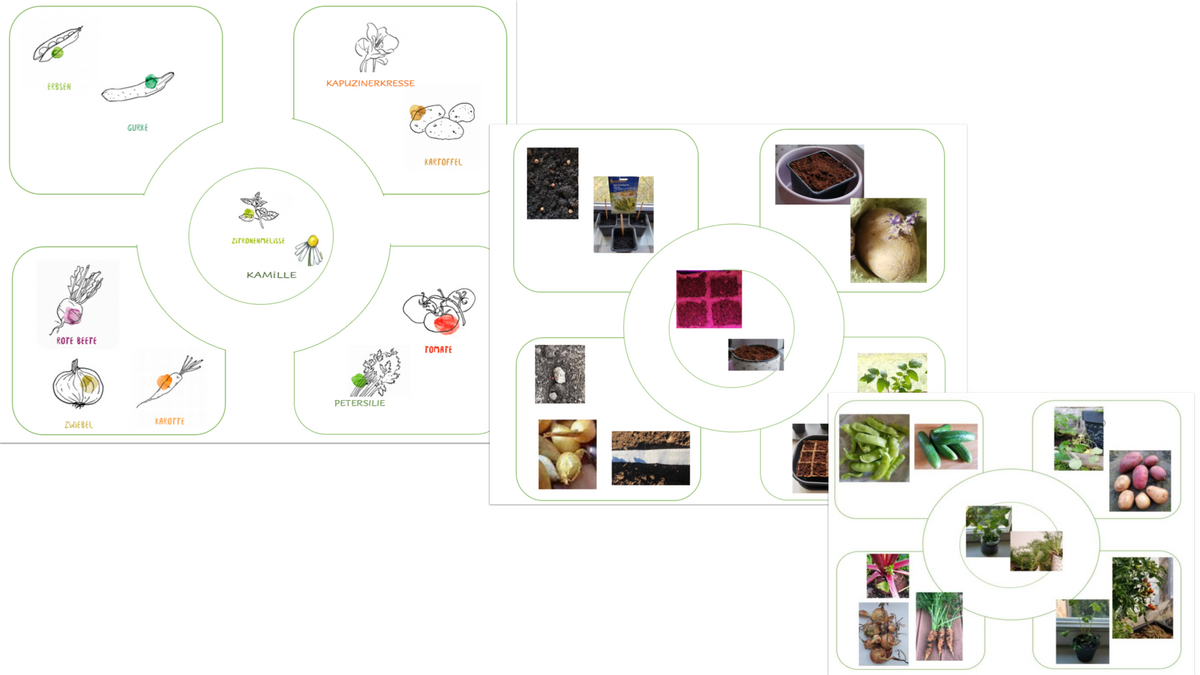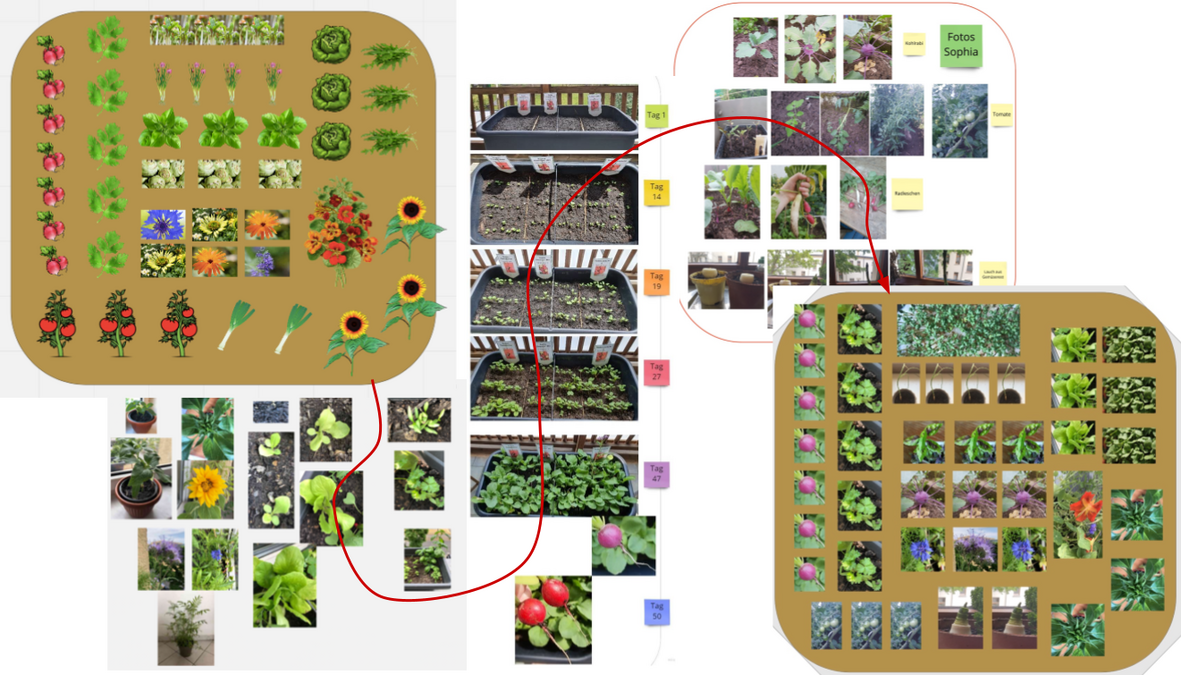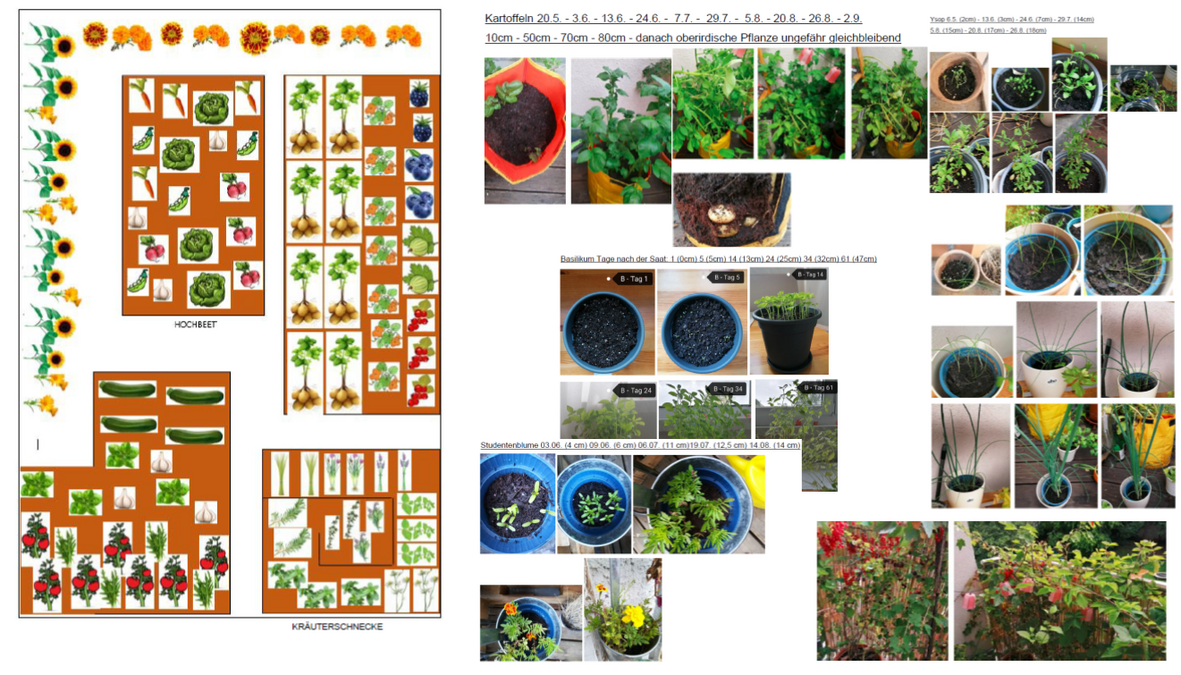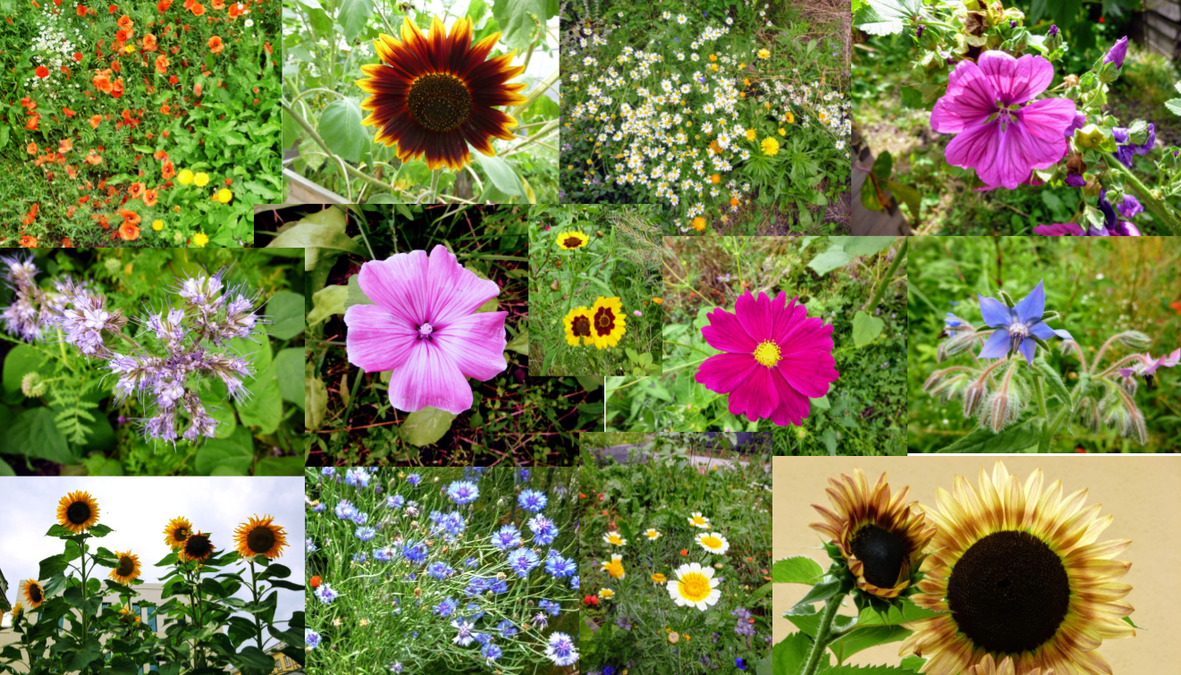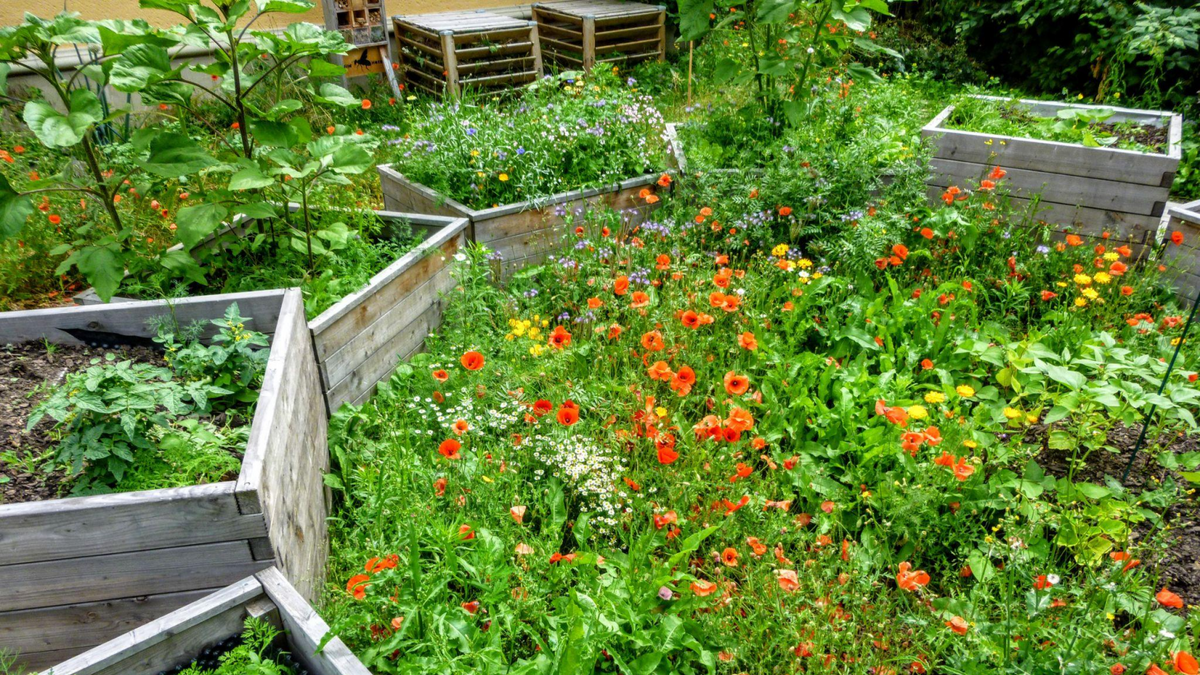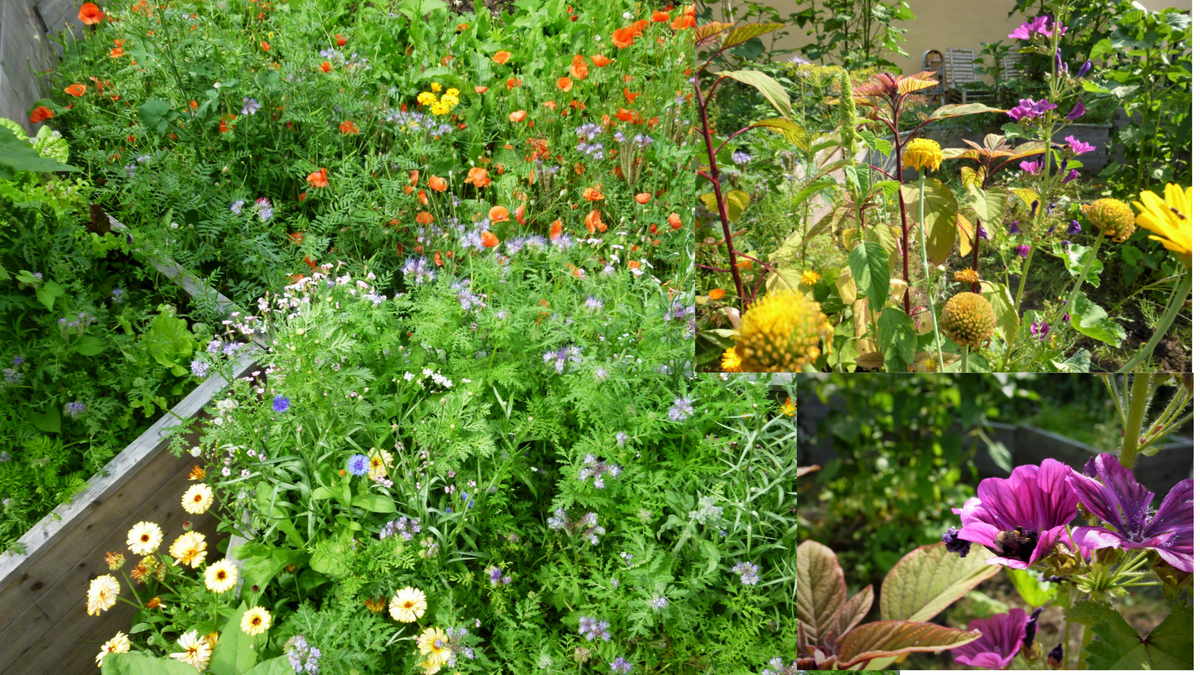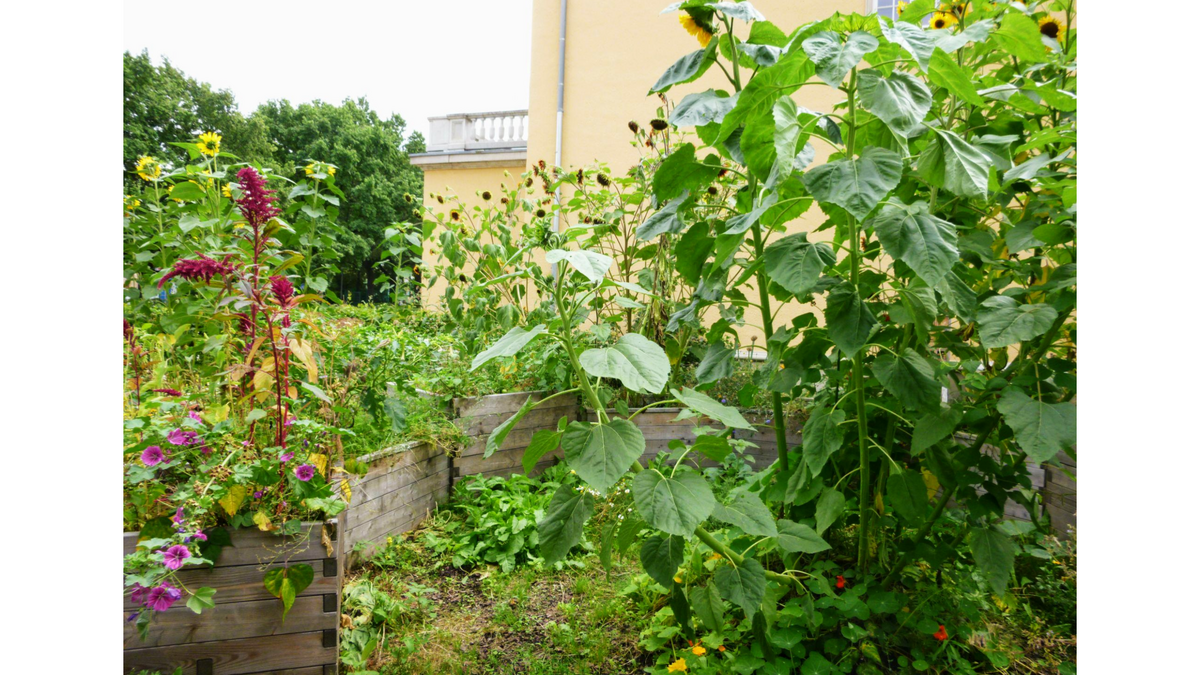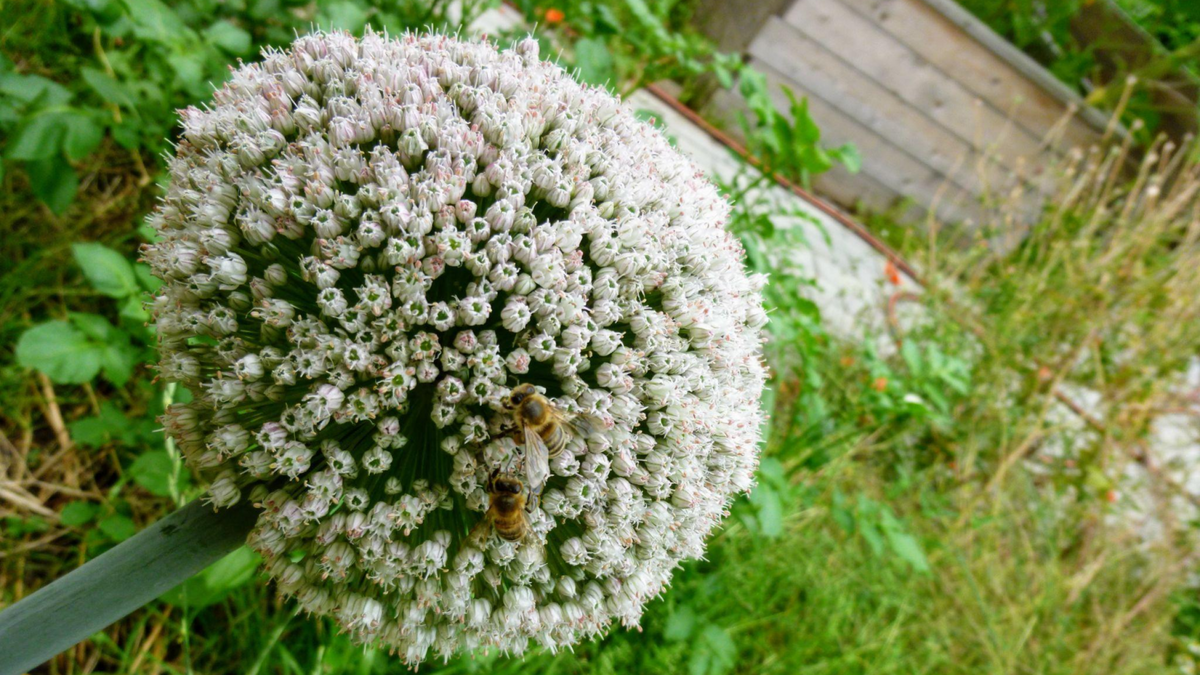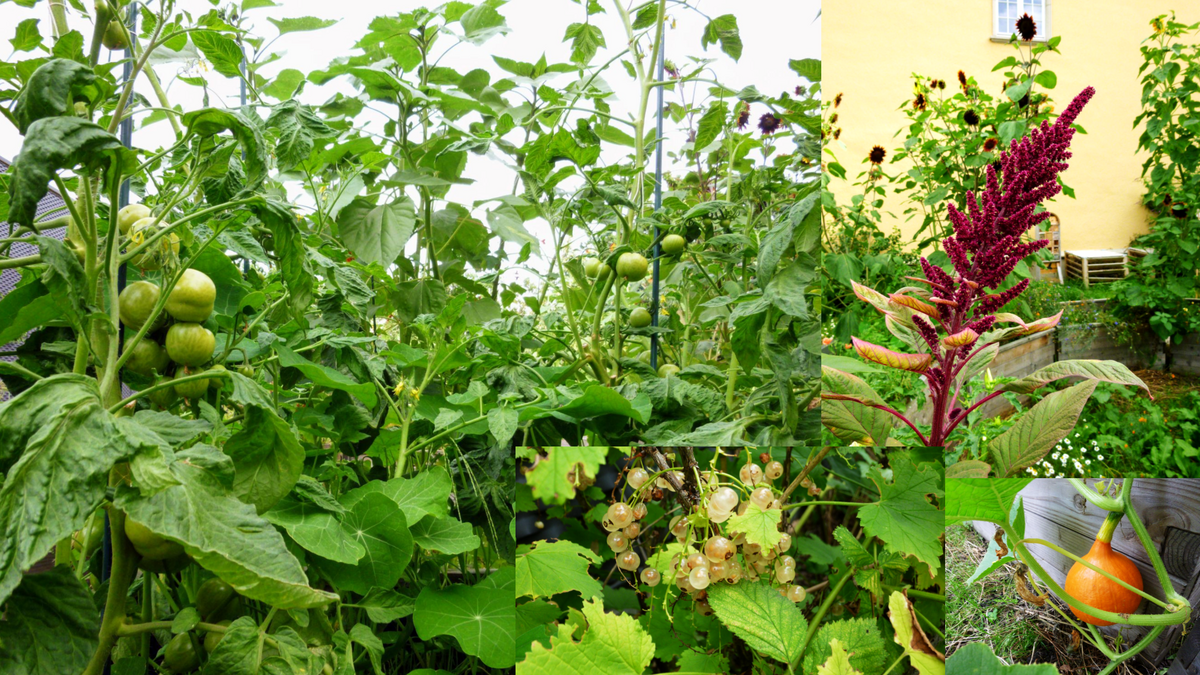In the past summer semester, teaching at the university was conducted digitally throughout, and so unfortunately our teaching and research school garden could not be integrated into the teaching as we had hoped. So we had to get a little creative in our teaching and improvise.
Does teaching school gardens in a digital semester make any sense at all? After all, the appeal of the school garden as a place of learning is that it goes outside, that it is practical, that it is about exploring and experiencing and with all the senses, that it is about planning and achieving something together with others, and literally reaping the fruits of one's labour. This was also often the motivation of the students to participate in our school garden seminar.
So how did we test and implement these learning potentials of the school garden despite the digital semester? First of all, we decided that it should by no means remain only theoretical. One element, we called it "virtual beds", was the idea that students, despite the fact that they may never have been together in one place in their project groups, can still plan a bed together, implement it, document its development, and celebrate successes together.
Some students only had a windowsill available, others were lucky enough to have a balcony or even an allotment garden. So it had to be decided and negotiated within the groups what should be grown and who had what possibilities.
Here it quickly became clear that there is an interweaving of technical and scientific as well as social aspects in the joint school garden work. Methods from the Prosocial approach were used for joint work, decision-making and reflection on cooperation. These helped project groups, for example, to think concretely about what their common goals are for their bed and their cooperation, how they ensure justice, how they make decisions together and how they can deal with possible conflicts, and also what their worries and doubts are and how they can overcome them.
In our school garden seminar, the approach of philosophising with children was also integrated - as a principle of critically questioning ethical, moral and existential questions of meaning and being. In particular, the experiential spaces of "nature" and "garden" provide an occasion for such questions and discourses, e.g. about the relationship between nature and humans, about responsibility, sustainability, justice, time and transience, beauty and "wildness" and their role for a "good life".
